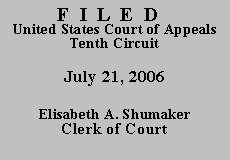

| UNITED STATES OF AMERICA,
Plaintiff-Appellee, v. HARRY LAVONN ROBERTS, Defendant-Appellant. |
|
In Hahn, 359 F.3d at 1325, this court held that "in reviewing appeals brought after a defendant has entered into an appeal waiver" this court will determine "(1) whether the disputed appeal falls within the scope of the waiver of appellate rights; (2) whether the defendant knowingly and voluntarily waived his appellate rights; and (3) whether enforcing the waiver would result in a miscarriage of justice." As is applicable here, a miscarriage of justice will result if "the waiver is otherwise unlawful," to the extent that the alleged error "seriously affect[s] the fairness, integrity or public reputation of judicial proceedings." Id. at 1327 (quotations omitted; citing United States v. Olano, 507 U.S. 725, 732 (1993)).
The government's motion to enforce addresses each of the three Hahn prongs. Mr. Roberts, however, opposes the motion only on the third prong. We therefore address only that prong.(1) See United States v. Porter, 405 F.3d 1136, 1143 (10th Cir.) (recognizing court need not address each Hahn factor if defendant does not make argument with respect to that factor), cert. denied, 126 S. Ct. 550 (2005).
Mr. Roberts argues that enforcement of the plea agreement would seriously affect the fairness, integrity, or public reputation of judicial proceedings. He primarily bases his argument on a recent Tenth Circuit decision, United States v. Ingle, No. 06-5091, 2006 WL 1828537 (10th Cir. July 5, 2006). According to Mr. Roberts, Ingle held that a conviction for being a felon in possession of a firearm is not a crime of violence. See id. at *1, *4. Based on his interpretation of Ingle, Mr. Roberts contends that it was a miscarriage of justice for the district court to treat his conviction as a crime of violence when imposing a sentence of sixty-three month's imprisonment. Also, he maintains he could not waive the right to appeal this issue because Ingle had not been decided at the time of his sentencing.
We disagree with Mr. Roberts' interpretation of Ingle. Ingle clearly limited its holding to cases decided under the Bail Reform Act of 1984. Id. That Act is inapplicable to Mr. Roberts' sentencing. Rather, at sentencing, the district court decided, based on the charging instrument, that Mr. Roberts' predicate conviction for burglary was a crime of violence under the definition set forth in the Sentencing Guidelines. Sentencing Tr. at 41-42; see also U.S.S.G. § 4B1.2(a)(2) (defining crime of violence to include offense of burglary of dwelling punishable by greater than one year of imprisonment); United States v. Vigil, 334 F.3d 1215, 1218-19 (10th Cir. 2003) (permitting court to determine nature of offense by looking at charging document). Ingle does not overrule the guidelines' definition.
Furthermore, the plea agreement stated that the statutory maximum sentence was ten years and that the district court was free to impose a sentence up to ten years' imprisonment. At the plea colloquy, Mr. Roberts stated that he understood that the maximum sentence was up to ten years' imprisonment. The sentence imposed conforms with the plea agreement's terms and Mr. Roberts' understanding of the plea. See United States v. Maldonado, 410 F.3d 1231, 1234 (10th Cir.) (per curiam) cert. denied, 126 S. Ct. 577 (2005). Mr. Roberts merely speculates that the district court was unaware that it could impose only supervised release, without a term of imprisonment.
We conclude that Mr. Roberts has not met his burden to persuade us that the waiver is "otherwise unlawful." Id. at 1233. Concerns of fairness, integrity, and public reputation favor enforcing the appellate waiver.
We GRANT the government's motion to enforce the plea agreement and
DISMISS the appeal. The mandate shall issue forthwith.
ENTERED FOR THE COURT
*. This panel has determined unanimously that oral argument would not materially assist the determination of this appeal. See Fed. R. App. P. 34(a)(2); 10th Cir. R. 34.1(G). The case is therefore ordered submitted without oral argument. This order and judgment is not binding precedent, except under the doctrines of law of the case, res judicata, and collateral estoppel. The court generally disfavors the citation of orders and judgments; nevertheless, an order and judgment may be cited under the terms and conditions of 10th Cir. R. 36.3.
1. It is clear from the plea agreement and plea colloquy that this appeal falls within the scope of the waiver of appellate rights and Mr. Roberts knowingly and voluntarily waived his appellate rights.